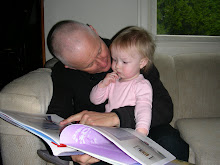Last Tuesday residents of British Columbia returned the Provincial Liberal Party to power. But the most significant fact in this election may not be who won and who lost, as who did not bother to participate in the process.
Justine Hunter in the Globe and Mail points out that, “Half of the province's eligible voters opted for ‘none of the above’ by staying home. And there are lessons for both parties in that result.”
I think the lesson of this dismal voter turnout is that it is enormously difficult to be a leader in the unsettled confusing times in which we live. The electorate looked at the leadership options and said, with Woody Allen’s character Cristina in “Vicky Cristina Barcelona,” “I know what I don’t want; but I don’t know what I do want.”
It is so easy and so tempting to be critical of existing leadership. Everyone is an expert until they find themselves in the position of having to make tough choices and difficult decisions.
The realities of the world in which we live almost guarantee that no leader is going to be popular for long.
When budgets are tight and cuts must be made, the leader who makes the cuts will be despised by those who lose their paycheck. When leaders fail to make cutbacks to bring in balanced budgets, they are reviled as irresponsible spendthrifts cashing in our children’s future. If you are going to be unpopular for cutting the budget and you are going to be unpopular if you fail to cut the budget, you are going to be unpopular.
In an uncertain world leaders must be willing to be unpopular. This is the flaw in democracy. Democracy rewards popularity with power. But good leadership comes from those who are willing to do what needs to be done even if it means being unpopular and losing the privilege of leadership.
Unpopularity, however, is not always the badge of good leadership. Bad leaders can also be unpopular. The leader who is arrogant, unresponsive, out of touch with the realities of peoples’ lives, and is only committed to the trappings of the office, will be justifiably unpopular.
A good leader must have a strong internal compass to guide decisions and keep heading in a consistent direction. But a good leader must also have the humility and flexibility to stay open to change. Only the leader with a stable inner sense of who they are has the security and calm to listen deeply to the realities in which leadership is being exercised and respond appropriately. When the leader’s inner sense of self is secure it is possible to be open and flexible enough to lead consistently in response to the constant turmoil of changing circumstances.
Good leadership in uncertain times is exercised by those who have taken the journey inward and have come to know themselves from the inside. Sadly, the person who is committed to taking the journey within is not the person who tends to win popularity contests and rise to the pinnacle of power in our culture.
Introduction
The name for this blog comes from the Hebrew word merchab. Merchab is a masculine noun that appears most often in the Psalms of the Hebrew Scriptures. It means a broad or roomy place, an expansive place, a wide place. Read more...
May 17, 2009
Leadership
Labels:
Leadership
Subscribe to:
Post Comments (Atom)

No comments:
Post a Comment